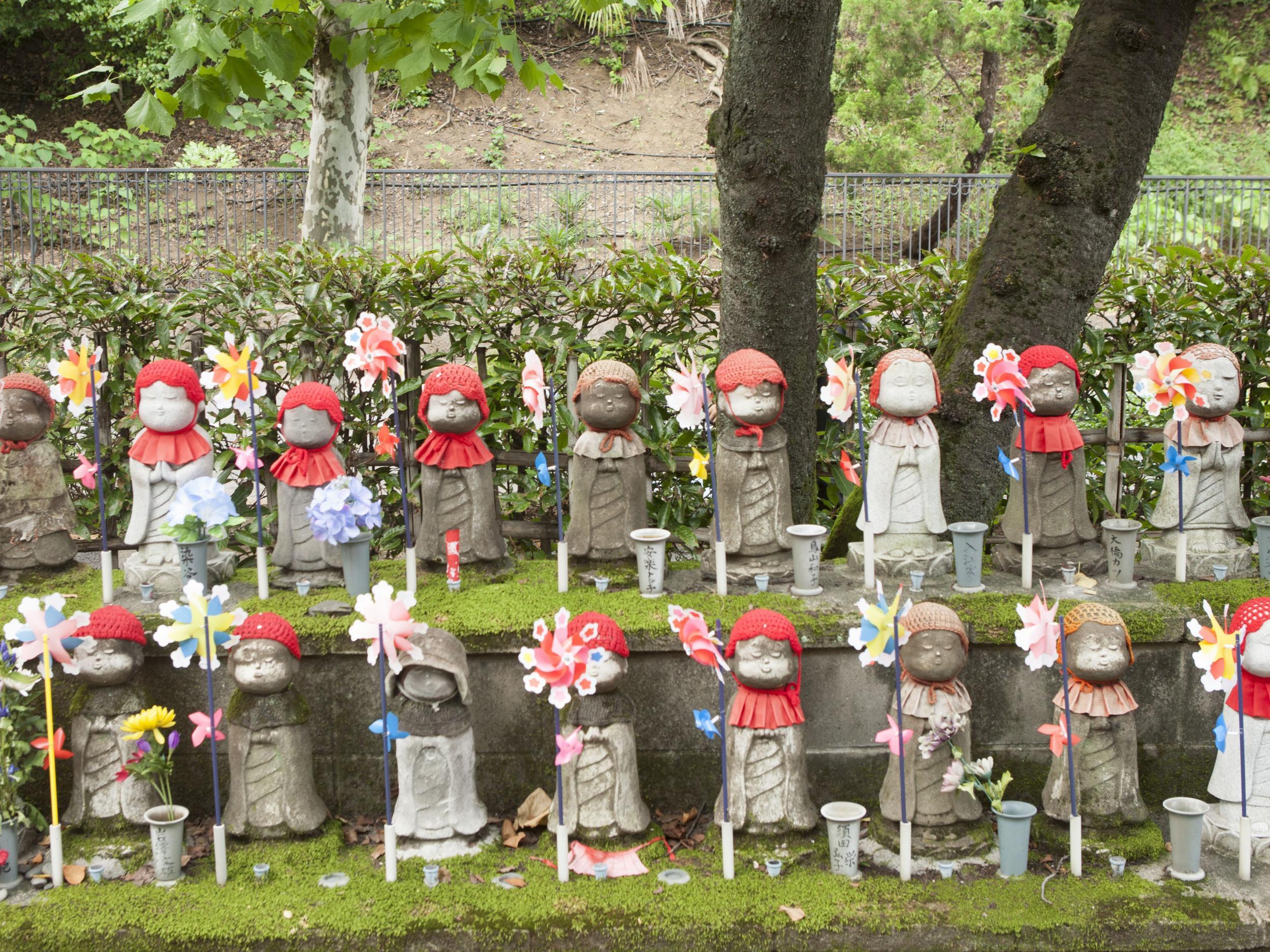The Independent's journalism is supported by our readers. When you purchase through links on our site, we may earn commission.
Jizo statues: The Japanese statues giving closure to women who have miscarried
One Japanese tradition is starting to spread in the west

Your support helps us to tell the story
From reproductive rights to climate change to Big Tech, The Independent is on the ground when the story is developing. Whether it's investigating the financials of Elon Musk's pro-Trump PAC or producing our latest documentary, 'The A Word', which shines a light on the American women fighting for reproductive rights, we know how important it is to parse out the facts from the messaging.
At such a critical moment in US history, we need reporters on the ground. Your donation allows us to keep sending journalists to speak to both sides of the story.
The Independent is trusted by Americans across the entire political spectrum. And unlike many other quality news outlets, we choose not to lock Americans out of our reporting and analysis with paywalls. We believe quality journalism should be available to everyone, paid for by those who can afford it.
Your support makes all the difference.For parents who experience the pain of a miscarriage, it can be difficult to know how to move on and where to seek solace and comfort.
However one Japanese tradition is starting to spread in the west, helping couples to cope after their heartbreak.
In Japan, some women find comfort in Jizo statues which line temples and cemeteries across the country. The statues are believed to be protectors of children and unborn babies in traditional Japanese Buddhist teachings. It is believed that as the babies did not have the chance to build up good karma on earth, Jizo helps smuggle the children into the afterlife in the sleeves of his robe.
The statues are often dressed in warm clothes in the hope that they will do the same for their unborn child.
Now the practice is spreading further afield than Japan, with some women in the US explaining how they found their Jizo statues comforting after experiencing the loss of an unborn child.
Writer Angela Elson wrote in the New York Times about how her Jizo had brought her comfort after miscarrying her child at 10 weeks: “Jizo now sits and reminds us of the baby we lost – not so often as to make us sad, but often enough so that we don’t forget him entirely."
The comments below the article demonstrate that while many might not have heard of this Buddhist tradition, it is providing comfort to parents in similar situations. One woman, whose daughter died at 16, said she keeps two Jizo statues in her garden which she sometimes burns incense next to.
Other women have shared their experiences on online forums. “My (seriously awesome) boss gave me a Jizo statue after my first loss. I treasure it knowing he might be watching over our babies,” said one in 2012.
Aside from Jizo statues, the Miscarriage Association offer advice on how to mark the loss of a baby in pregnancy. They suggest a certificate, memorial ceremony, planting flowers or trees, lighting candles on anniversaries, creating memory boxes and raising money for charity in their honour.
Join our commenting forum
Join thought-provoking conversations, follow other Independent readers and see their replies
Comments